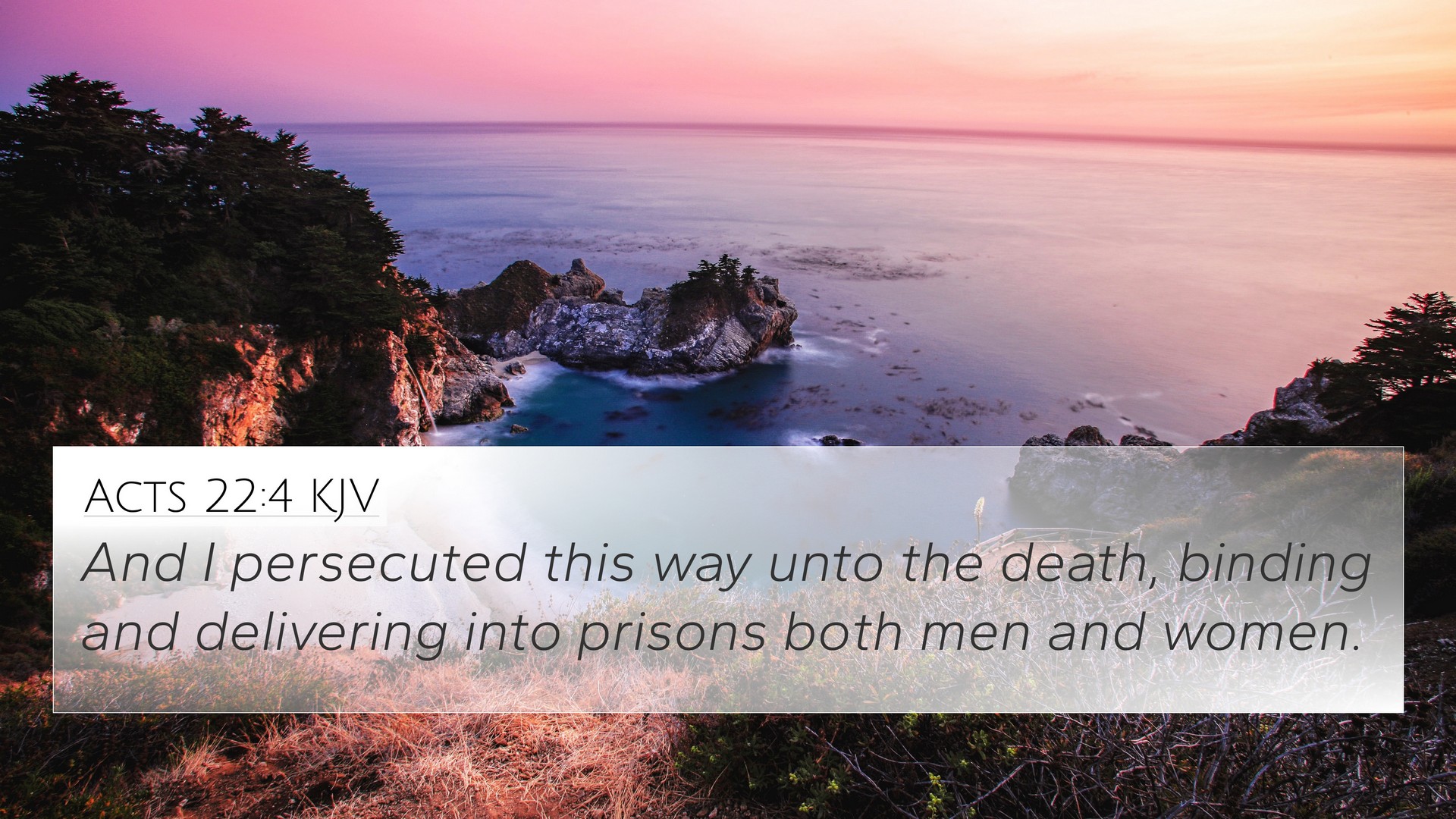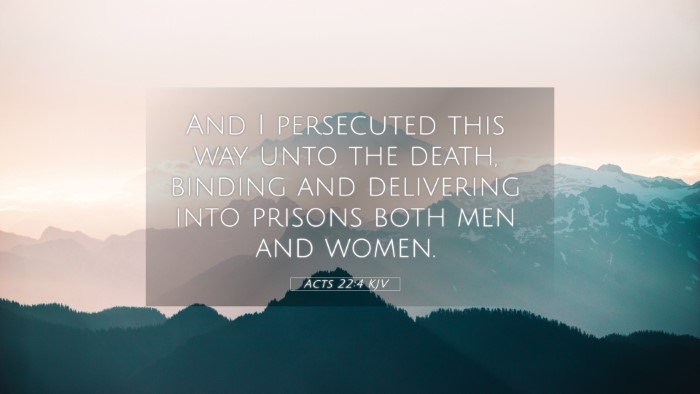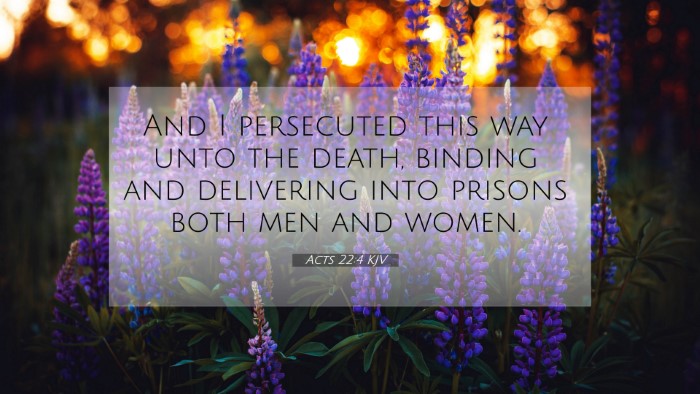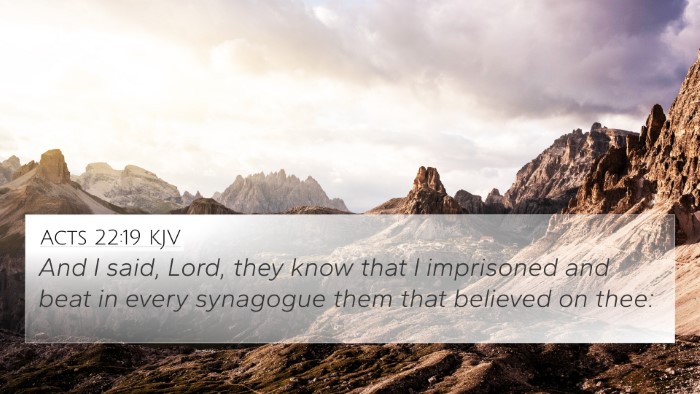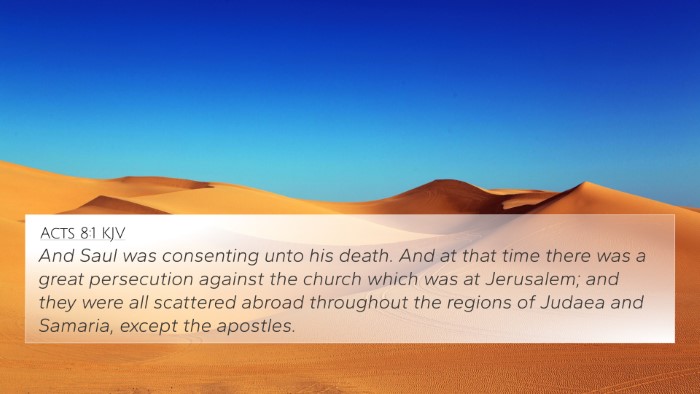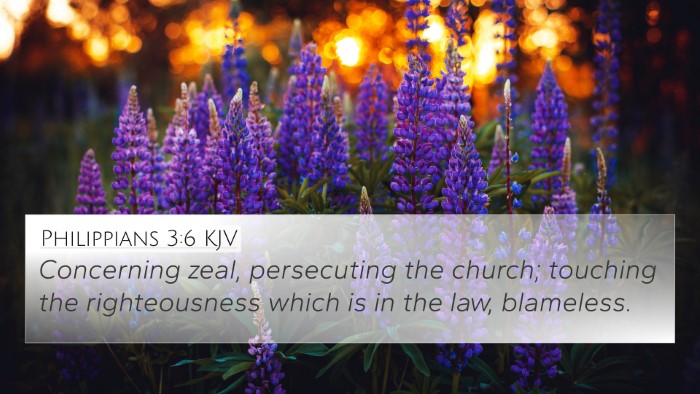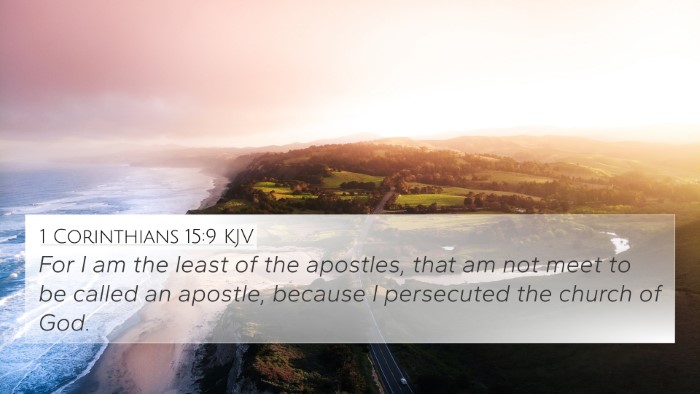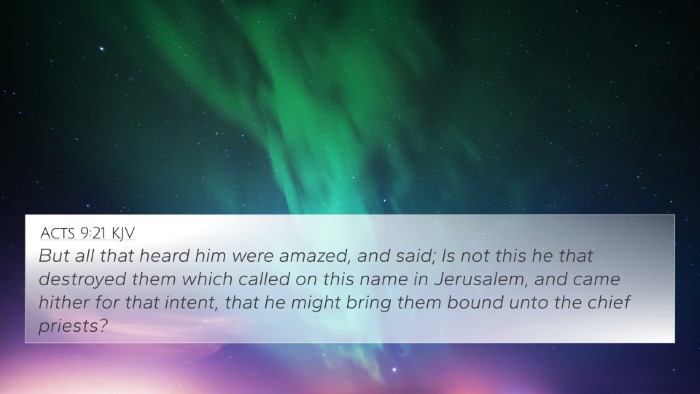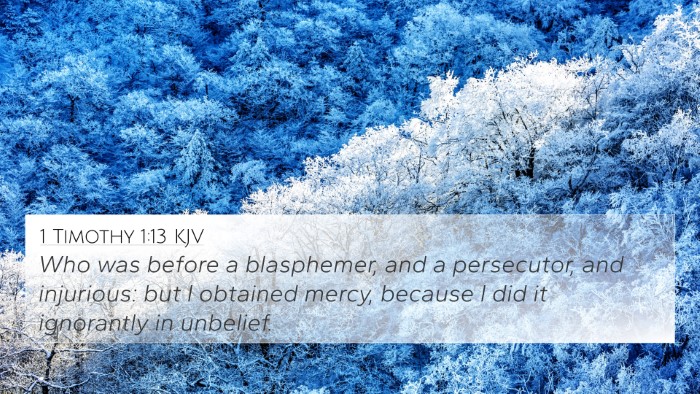Understanding Acts 22:4
Acts 22:4 states, "And I persecuted this way unto the death, binding and delivering into prisons both men and women." This verse is a powerful declaration from the Apostle Paul in his defense before the Jewish crowd. It highlights his zealous past as a persecutor of Christians, emphasizing the dramatic transformation he underwent after encountering Jesus.
Insights from Commentaries
Drawing from esteemed public domain commentaries, we can explore several key insights regarding this verse:
- Matthew Henry: Henry emphasizes the sincerity with which Paul persecuted the church, indicating that he believed it was his duty to uphold Jewish traditions against what he viewed as heresy. This conviction underlines the religious fervor that can often lead individuals to commit acts of violence in the name of faith.
- Albert Barnes: Barnes provides a detailed analysis of Paul's confession, noting that his actions were a testament to his passionate commitment to his beliefs before his conversion. He stresses the importance of understanding Paul’s background to appreciate the magnitude of his transformation.
- Adam Clarke: Clarke points out that Paul's admission of binding and delivering Christians to prison reflects the severity of the early church's persecution. He suggests that Paul's testimony serves as a reminder of the risks faced by early believers and the radical nature of his subsequent faith.
Key Themes in Acts 22:4
This verse embodies several themes that resonate throughout the Bible:
- Transformation: Paul's dramatic change from a persecutor to a proponent of Christianity illustrates the profound impact of encountering Christ.
- Persecution: Highlighting the early church's struggles, this verse invites reflection on the nature of faith and the cost associated with discipleship.
- Confession and Redemption: Paul's honest admission serves as an example of humility and the power of redemption available through faith.
Cross-References for Acts 22:4
To gain a deeper understanding of Acts 22:4, it is essential to explore its connections with other Biblical texts:
- Acts 9:1-2: Paul’s original intent to imprison followers of Christ.
- Philippians 3:6: Paul’s declaration of his zealousness in persecuting the church.
- 1 Timothy 1:13: Paul’s acknowledgment of his past as a blasphemer and persecutor.
- Galatians 1:13-14: Further reflection on Paul's past actions against the church.
- Matthew 5:10-12: Teaching on the blessedness of those persecuted for righteousness.
- 2 Timothy 3:12: The assurance that all who desire to live godly in Christ will face persecution.
- Acts 26:9-11: Paul's own recounting of his efforts to persecute Christians.
Connecting Bible Verses
The connections between these verses highlight important themes of faith, redemption, and the struggles faced by early Christians. For those interested in Bible cross-referencing, tools such as Bible concordances or cross-reference guides can aid in understanding these relationships. Knowing how to find cross-references in the Bible can reveal rich thematic explorations that enhance one’s spiritual journey.
Concluding Thoughts
Acts 22:4 serves as a poignant reminder of the transformative power of God’s grace and the potential for redemption, regardless of a person’s past. As believers explore the connections between this passage and others in Scripture, they can gain insights into God’s continuous work in the lives of individuals and the church at large.
In conclusion, understanding Acts 22:4 not only illuminates Paul’s past but also invites believers today to reflect on their transformations through faith, the importance of sharing one’s testimony, and the inextricable link between persecution and the call to follow Christ.
